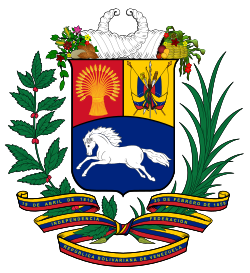Campaign
A referendum was then called for 15 December in order to approve or reject the text. Democratic Action, Copei, Justice First, Project Venezuela and Fedecamaras campaigned against the approval of the Constitution. Although these forces agreed that a new Magna Carta was necessary in general, they were in complete disagreement with the result, where their representation had been symbolic. [5] [6] [7] [8]
Critics believed that the new constitution centralized the national government greatly, granting it too much power while also making too many promises. [9] Henrique Capriles Radonski, then Vice President of the Congress and President of the Chamber of Deputies, stated "This is a centralist, presidentialist constitution with no spread of power to the states and cities ... This is a corrupt constitution that will leave Venezuela backward and poor". [9] Others scoffed at all of the red tape the constitution granted which would scare away foreign investment while also recognizing over-reliance on imported goods. [9]
Weeks before the referendum, tens of thousands protested against the constitutional changes on 24 November 1999, stating that it granted the president, Hugo Chávez, too much power. [9] Chávez responded to his opposition, stating "Those who side with the 'No' vote should get ready because the attack will be merciless ... I will put my boots on and unsheathe my sword". [9]
Conduct
The referendum took place under the same climate of apathy as the one held in April, although the turnout rose to 44%. The increased turnout was attributed to opposition to the new constitution, as the Chavismo suffered marginal losses. [10] [11] Although the state of fragmentation of the partisan opposition, which seemed not to have overcome the 1998 defeat, did not allow them to assume an enthusiastic campaign for the "No", the opposition experienced an increase of 142% with respect to the last referendum. [10] [11] [12] However, the majority of Venezuelans continued to show disinterest in the struggle between pro-government and opposition, even when the constitution was at stake. [12]
This page is based on this
Wikipedia article Text is available under the
CC BY-SA 4.0 license; additional terms may apply.
Images, videos and audio are available under their respective licenses.

